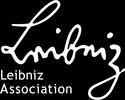Right-Wing Populism and Extremism, Crises and Innovative Counter-initiatives
Right-wing populists have been gaining ground in Europe since the 1980s, also in Germany. In public discourses this phenomenon has been associated with multiple societal crises. It is above all economic crises, crises of democracy and social crises in terms of desolidarisation which are discussed in this context, whereby respective crisis situations are considered to be particularly severe in structurally weak regions. There, not least also aspects of the demographic crisis are a topic of discussion. These are the grounds for dissatisfaction among the citizens which strengthen populist forces and can lead to radicalisation processes. This does not hide the fact that at the same time in some places civil society and political initiatives can be observed in which the actors attempt to counter the crises beyond existing paths and to strengthen democratic practices. In the context of their action strategies they often even address pressing structural problems in their regions. These novel approaches of respective initiatives can be understood as social innovations.
Since crises, right-wing populism as well as the engagement against the “ultra-right” have a long history, in the interdisciplinary approach of the project a focus will be laid upon the historical roots of the phenomena. In the historical analysis it is in particular factors of disintegration and re-integration with regard to democratic participation which are of interest (historical perspective, ZZF). For the present time, the focus of the investigation will be on the social construction of crises and on the perceptions of disintegration processes particularly of residents of structurally weak regions (sociological perspective, IRS). Not least local initiatives will be analysed in which novel solutions for the perceived problems and for the strengthening of democratic practices in structurally weak regions are developed. Among other things, there it is asked under which conditions they have emerged and which are promoting and empeding factors for their work (perspective of political science, HSFK).
Participating Institutes
Peace Research Institute Frankfurt (PRIF)
Leibniz Institute for Regional Development and Structural Planning (IRS)
Centre for Contemporary History, Potsdam (ZZF)
Contact
Prof. Dr. Gabriela B. Christmann (IRS)
Project term
07/2016
